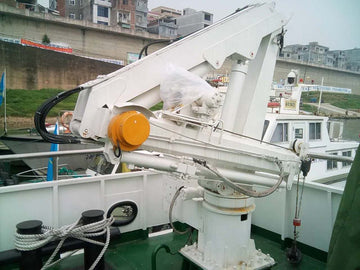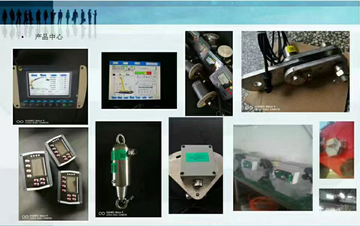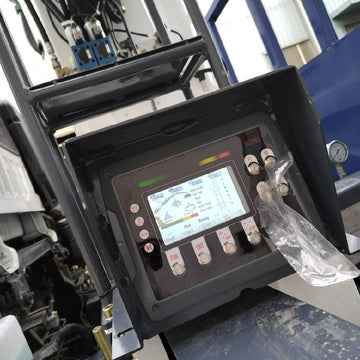Truck-mounted cranes are essential tools in various industries, including construction, logistics, and rescue operations. Proper maintenance is crucial to ensure their longevity, safety, and efficiency. Neglecting maintenance can lead to costly repairs, downtime, and even accidents. This article will provide detailed maintenance tips for truck-mounted cranes to help you keep them in optimal condition.
Regular inspections are the first step in maintaining your truck-mounted crane. Conducting daily, weekly, and monthly checks can help identify potential issues before they become serious problems.
Daily Inspections:
-
Visual Check: Inspect the crane for any visible damage or wear, such as cracks, rust, or loose bolts.
-
Fluid Levels: Check hydraulic fluid, engine oil, coolant, and fuel levels. Ensure they are within the recommended range.
-
Control Systems: Test the control systems to ensure they are functioning correctly. This includes the joystick, buttons, and safety switches.
Weekly Inspections:
-
Hydraulic System: Inspect the hydraulic hoses and connections for leaks or damage. Ensure the hydraulic fluid is clean and free of contaminants.
-
Load Hook and Wire Rope: Check the load hook for any signs of wear or deformation. Inspect the wire rope for fraying, kinks, or broken strands.
-
Brakes and Tires: Examine the brakes and tires for wear and tear. Ensure the tires are properly inflated and the brakes are responsive.
Monthly Inspections:
-
Structural Components: Inspect the boom, outriggers, and other structural components for any signs of fatigue or damage.
-
Electrical System: Check the battery, wiring, and electrical connections for corrosion or loose connections.
-
Lubrication: Ensure all moving parts are adequately lubricated. This includes the boom pivot points, outriggers, and load hook.
Lubrication is vital for the smooth operation of your truck-mounted crane. It reduces friction between moving parts, preventing wear and extending the crane's lifespan.
-
Lubrication Schedule: Follow the manufacturer's recommended lubrication schedule. Over-lubrication can attract dirt and debris, while under-lubrication can cause excessive wear.
-
Quality Lubricants: Use high-quality lubricants suitable for your crane's specific components. Avoid mixing different types of lubricants.
-
Application: Apply lubricants to all moving parts, including the boom, load hook, and outriggers. Ensure the lubricant penetrates all contact surfaces.
Hydraulic System Maintenance
The hydraulic system is the heart of your truck-mounted crane. Proper maintenance is essential to ensure its efficiency and reliability.
-
Fluid Levels: Regularly check and maintain the hydraulic fluid levels. Low fluid levels can cause the system to overheat and fail.
-
Fluid Quality: Replace the hydraulic fluid according to the manufacturer's recommendations. Contaminated fluid can damage the hydraulic system.
-
Filter Replacement: Replace hydraulic filters regularly to prevent contaminants from entering the system. Clogged filters can reduce efficiency and cause damage.
-
Leak Inspection: Inspect hydraulic hoses and connections for leaks. Address any leaks immediately to prevent fluid loss and potential system failure.
Electrical System Maintenance
The electrical system powers the crane's control and safety systems. Proper maintenance ensures reliable operation and prevents electrical failures.
-
Battery Maintenance: Check the battery's charge and condition regularly. Clean the terminals and ensure they are securely connected.
-
Wiring Inspection: Inspect the wiring for signs of wear, corrosion, or damage. Replace any damaged wires or connectors.
-
Safety Switches: Test all safety switches and emergency stop buttons to ensure they are functioning correctly. Replace any faulty switches immediately.
Load Handling and Safety
Proper load handling and safety practices are crucial to prevent accidents and damage to your truck-mounted crane.
-
Load Capacity: Always adhere to the crane's load capacity limits. Overloading can cause structural damage and increase the risk of accidents.
-
Load Distribution: Ensure the load is evenly distributed and securely fastened. Uneven loads can cause the crane to tip over.
-
Operating Conditions: Avoid operating the crane in extreme weather conditions, such as high winds or heavy rain. These conditions can affect stability and visibility.
-
Operator Training: Ensure all operators are properly trained and certified to operate the crane. Regularly review safety protocols and best practices.
Storage and Environmental Considerations
Proper storage and environmental considerations can extend the lifespan of your truck-mounted crane and prevent damage.
-
Storage Location: Store the crane in a dry, sheltered location when not in use. Exposure to the elements can cause rust and corrosion.
-
Covering: Use protective covers to shield the crane from dust, debris, and moisture.
-
Temperature Control: Avoid exposing the crane to extreme temperatures. Both high and low temperatures can affect the performance of hydraulic and electrical systems.
Documentation and Record Keeping
Maintaining detailed records of all inspections, maintenance, and repairs is essential for the long-term care of your truck-mounted crane.
-
Maintenance Log: Keep a maintenance log that records all inspections, lubrication, fluid changes, and repairs. This helps track the crane's condition and identify recurring issues.
-
Service Records: Maintain records of all professional service and repairs. This documentation can be valuable for warranty claims and resale purposes.
-
Compliance: Ensure all maintenance and repairs comply with local regulations and manufacturer recommendations.
Proper maintenance of your truck-mounted crane is crucial for its safe and efficient operation. Regular inspections, proper lubrication, hydraulic and electrical system maintenance, load handling safety, and proper storage are all essential components of a comprehensive maintenance plan. By following these tips and keeping detailed records, you can extend the lifespan of your crane, reduce downtime, and ensure the safety of your operations.



